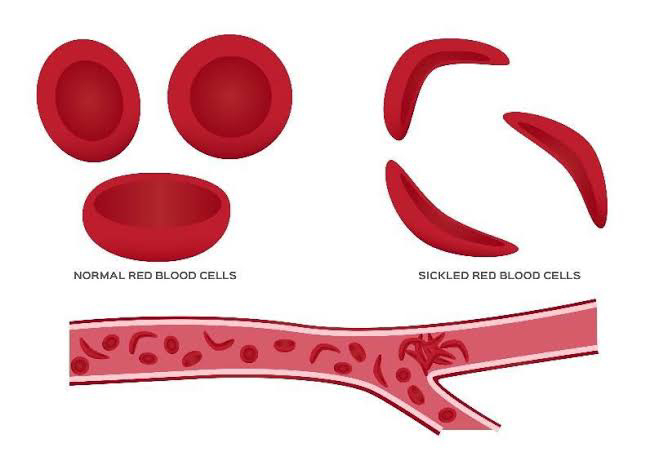STORY By ENOCK NYAMWEYA
For quite long in our homes, schools, and even churches, there are brothers, sisters or friends silently battling a painful disease called sickle cell anaemia. Many are too afraid or ashamed to talk about it. But, let us face this illness together – not in fear, but with courage, understanding, and action.
Sickle cell anaemia is a medical condition that can be managed by appropriate medication. Visit your nearest hospital for screening and support.
Sickle cell anaemia is a genetic blood disorder that affects how red blood cells carry oxygen throughout the body. Instead of round, flexible cells, those with the condition have cells shaped like a sickle – or a curved farming tool. These sickle-shaped cells get stuck in blood vessels, causing pain, fatigue, organ damage, and sometimes, early death.
This disease is inherited, meaning a child gets it when both parents carry the sickle cell trait. If just one parent has the trait, the child may not be sick, but can still pass it on. That’s why knowing your sickle cell status is so important, especially before marriage or having children. Many of our people suffer in silence. Instead of seeking medical help, some turn to myths, stigma, or self-blame. Others fear judgment, and hide their condition. Yet, behind closed doors, they suffer frequent pain crises, miss school and feel isolated.
It’s time to say enough is enough!. Sickle cell anaemia is not a curse, not witchcraft, and definitely not a punishment. It is a medical condition – and it can be managed. I am urging everyone in our community: "do not be ashamed of sickle cell anaemia. Talk about it openly. Support those living with it. Go to the hospital. Get tested”.
Modern medicine has come a long way. With proper treatment, people living with sickle cell anaemia can lead long, productive lives. Medication, regular checkups, pain management, and even blood transfusions are available at most local health facilities.
Parents, if your child is always sick, weak, or complains of joint pain, take them for screening. Young people, before getting married or starting a family, know your sickle cell status. Prevention starts with knowledge.
Let us break the culture of silence. Let us replace fear with facts, judgment with love, and silence with support. Through encouraging one another to speak out, forming support groups, visiting health centres for advice and treatment. It is our responsibility to stand with those affected, not isolate them.
Churches, schools, chiefs, and community leaders must be part of this movement. Let’s talk about sickle cell anaemia the same way we talk about malaria or HIV – with honesty, empathy, and determination.
Let us not wait until we lose another life. Let us act now. Get tested! Get treated! Get informed. Because sickle cell anaemia is real – and so is the hope of living well.
Visit your nearest hospital for screening and support. Your life or your child’s could depend on it.
The Writer is a Fourth Year Student at Chuka University pursuing a Bachelor of Arts Degree in Journalism












 MWINGI TIMES for timely and authoritative news.
MWINGI TIMES for timely and authoritative news.
Today 19th June 2025 marks one
ReplyDeleteof the celebration days of the sickle cell anaemia day.Indeed it should be amplified much so that people get educated and take action to end this disease.